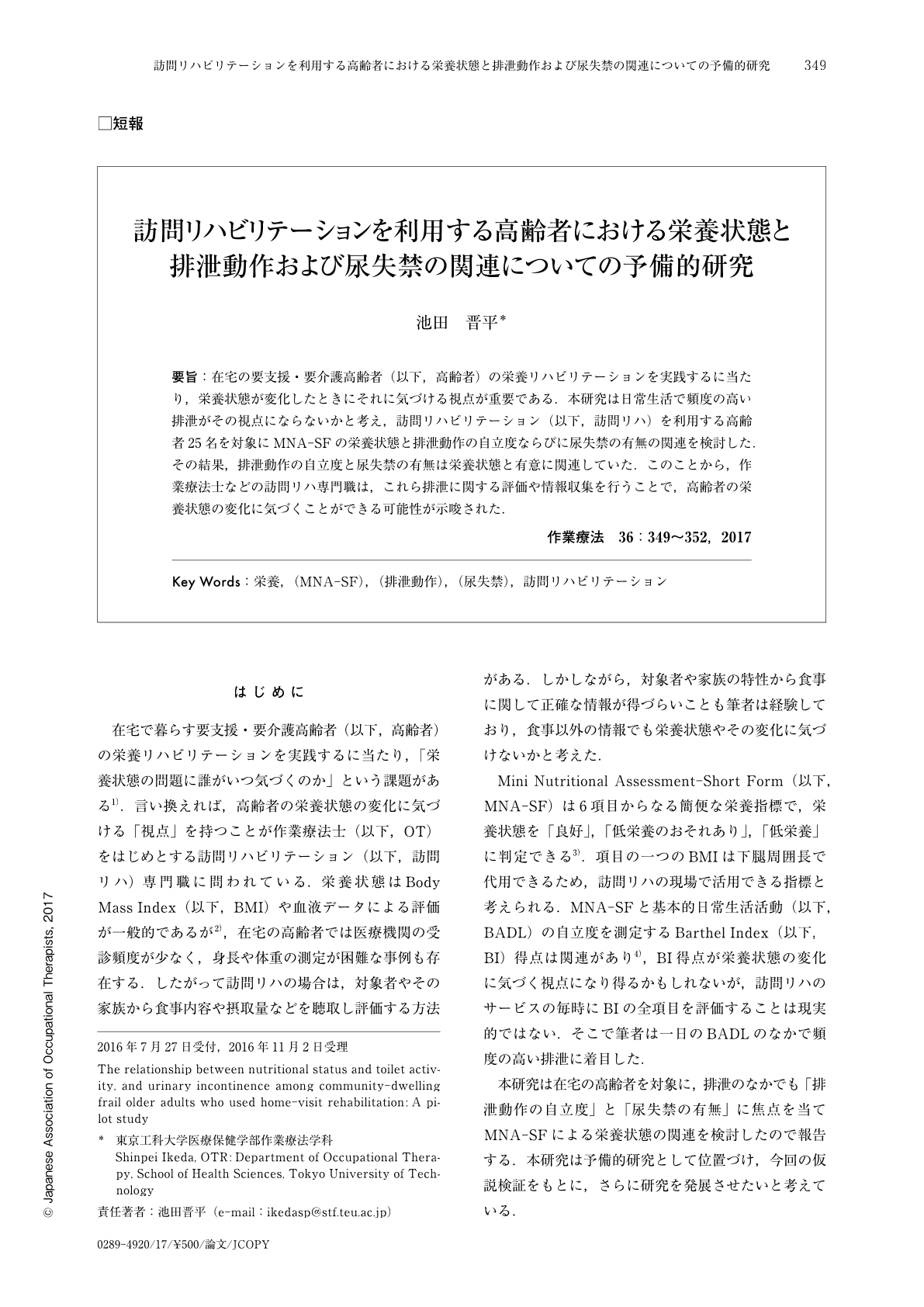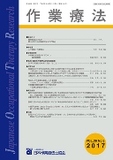Japanese
English
- 販売していません
- Abstract 文献概要
- 1ページ目 Look Inside
- 参考文献 Reference
要旨:在宅の要支援・要介護高齢者(以下,高齢者)の栄養リハビリテーションを実践するに当たり,栄養状態が変化したときにそれに気づける視点が重要である.本研究は日常生活で頻度の高い排泄がその視点にならないかと考え,訪問リハビリテーション(以下,訪問リハ)を利用する高齢者25名を対象にMNA-SFの栄養状態と排泄動作の自立度ならびに尿失禁の有無の関連を検討した.その結果,排泄動作の自立度と尿失禁の有無は栄養状態と有意に関連していた.このことから,作業療法士などの訪問リハ専門職は,これら排泄に関する評価や情報収集を行うことで,高齢者の栄養状態の変化に気づくことができる可能性が示唆された.
This study examined the relationship between nutrition status assessed by MNA-SF and potential factors among community-dwelling frail older adults. The potential factors included mobility of toileting and urinary incontinence. The participants were 25 older adults who needed both support and long-term care at home, and home-visit rehabilitation. The results show that urinary incontinence and mobility of toileting were significantly associated with nutritional status. It is important that health-care providers such as occupational therapists focus on the degree of toileting assistance and the occurrence of urinary incontinence in order to identify changing nutritional status among frail older adults at home.

Copyright © 2017, Japanese Association of Occupational Therapists. All rights reserved.


